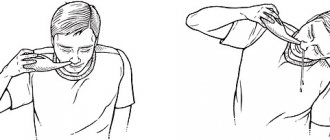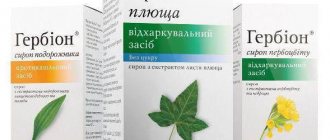Rubella is an infectious disease that is spread by airborne droplets. The incubation period is 24 days. The first symptom of the pathology is often a rash. The clinical picture may be blurred. There is a possibility of a complete absence of characteristic signs.
Rubella vaccination for adults and children is given in accordance with the approved vaccination schedule.
If a person does get sick, the doctor prescribes symptomatic treatment. The consequences of infection can be joint pain, problems with blood clotting, and encephalitis. Pregnant women who have not been vaccinated should be careful.
The virus will not cause much harm to the mother; the unborn child will suffer in any case. A newborn baby who was infected in the womb is diagnosed with congenital rubella syndrome. Often there are complications. These include blindness, liver inflammation, deafness, mental retardation, and heart disease.
The level of susceptibility to this pathology is low. Children aged 2-9 years are at risk. The peak of infection occurs in winter and spring.
You can get rubella again. The immunity produced by the body upon penetration of pathogens of this pathology is not lifelong. The stability of the body depends on the individual characteristics of a person, his diet, the absence (presence) of bad habits, and the influence of external unfavorable factors.
Do I need a vaccine against measles, rubella and mumps?
With the help of the multivalent MMR vaccine, an immunological drug is administered, which leads to the formation of immunity against three diseases.
The MMR vaccine contains weakened viruses of these infections - measles, rubella and mumps. Viruses stimulate the body's defense reactions and activate the child's immune system. The baby “defeats” infections and develops lasting immunity.
These infections are not as harmless as many people think. Damage to the brain and its membranes, neuritis with the development of deafness and blindness are frequent complications of viral diseases.
Rubella is especially dangerous for pregnant women, and mumps is especially dangerous for men. The appearance of rubella in an expectant mother leads to the formation of severe fetal malformations and miscarriages. The occurrence of mumps in men causes inflammation of the testicles - orchitis. The risk of remaining infertile with orchitis reaches 20%. This is especially true for adolescents aged 13–14 years, who are undergoing active puberty.
The sad consequences of diseases can be prevented through vaccination. Therefore, these diseases are classified as controlled infections; their spread is regulated through vaccination measures.
Only people can carry viruses and spread these diseases. The more vaccinated people there are, the fewer viruses will circulate in nature. The frequency of infections will gradually decrease, and subsequent generations will encounter the virus less frequently.
Why vaccinate your child against rubella?
It is known that rubella is most dangerous for pregnant women, since it has an extremely negative effect on the fetus: more than half of newborns experience deafness, and blindness and heart disease are also common. Therefore, the advisability of rubella vaccination for women planning pregnancy seems to be beyond doubt. However, parents often ask the question: why vaccinate a one-year-old girl or, especially, a boy against rubella? After all, it is known that in most cases rubella is quite mild?
As in the case of mumps, the most well-known complication among the people is far from the only one and, alas, not even the most terrible. Progressive rubella panencephalitis, a rare but terrible complication, most often affects boys aged 8 to 19 years. With this complication, a person’s intellect gradually fades and motor functions die off, and it ends with dementia and death. Other complications from rubella that do not discriminate by gender include arthritis, pneumonia and hepatitis.
What types of MMR vaccines are there?
The MMR vaccine has several types, which differ in the type of weakened viruses. In the modern world, only typed viruses are used, which ensure the formation of long-term immunity and reliably protect against dangerous diseases.
Research has proven that it is possible to administer any modern vaccine; they are practically no different in effectiveness. All vaccines are considered interchangeable and can be used in different combinations. It doesn’t matter what immunological drug the first vaccination was given, any vaccine will do for the second dose.
Vaccinations also differ in the amount of weakened viruses. There are three-component vaccines that consist of weakened viruses from all three diseases. Dicomponent vaccines can protect against two diseases - measles and rubella or measles and mumps. The monocomponent immunological drug contains weakened viruses of one of three diseases.
If MMR vaccination can be carried out with a three-component vaccine, then one injection is sufficient. In the case of a combination of dicomponent and monocomponent vaccines, injections should be made in different parts of the body. And when using monocomponent vaccines, the baby will have to get three injections, because mixing vaccines is strictly prohibited.
Vaccines used
The drug that protects against rubella (both in the form of a monovalent and polyvalent vaccine) can be domestic or imported. The most popular vaccines include Rudivax, MMR, Priorix, Ervevax. They are produced in Belgium and France. MMR (multicomponent vaccinations against measles, mumps and rubella) are not produced in Russia today.
Therefore, drugs for children are purchased abroad. Polyvalent vaccines have fewer side effects. They are called “live” because they contain weakened pathogens of 2 or 3 infectious pathologies.
How and where are one- and two-component vaccinations given?
Grafting is carried out in different parts of the body sequentially one after another. Drugs of this type have their positive sides. They have a gentler effect on the patient’s body, that is, they do not cause severe discomfort after vaccination.
Which vaccine should be preferred?
The effectiveness and safety of Russian and foreign vaccines are equally high.
The disadvantage of the domestic drug is the mixed composition of the vaccine. To form reliable protection against diseases, the baby will have to receive two injections at a time. For immunization with a three-component vaccine, imported immunobiological preparations are used. These vaccines are safe and convenient to use, but are not always available at the clinic.
Names of foreign vaccines:
- "MMR-II", American-Dutch production;
- Belgian Priorix;
- "Ervevax", brought from Britain.
All vaccines have proven themselves to be high quality drugs with a minimum of side effects. But such serious issues as the choice of vaccine and immunization of the child must be decided by the doctor, taking into account the child’s medical history.
How to cope with the consequences of vaccination
Mild manifestations after the injection do not require special treatment or medication. So redness and swelling usually go away on their own after a few days and should not cause concern. This reaction indicates a normal immune response to the introduction of live attenuated viruses.
For fever, the usual antipyretics are used, for children - according to age. In case of a moderate allergic reaction, antihistamines and anti-allergenic drugs will help eliminate the symptoms.
In case of severe reactions (profuse rash, sudden rise in temperature to high levels), as well as convulsions, development of a toxic reaction, you should immediately seek medical help, call a doctor or an ambulance.
How is vaccination carried out?
The first vaccination is given to children at the age of one, and the vaccine is administered again at 6 years of age. The vaccine is usually well tolerated, and by 21 days, 98% of vaccinated children have developed lasting immunity.
If vaccination was not completed within the prescribed time frame, it is possible to reschedule the vaccination; this does not reduce the effectiveness of protection against infection. But you shouldn’t postpone vaccination for a long time either; the child runs the risk of encountering a viral infection. The child must be vaccinated before enrolling in school.
For children under 3 years of age, it is preferable to give the injection intramuscularly, in the thigh. Repeated vaccination for six-year-old children is carried out in the deltoid muscle, in the shoulder.
The MMR vaccine is also sometimes indicated for adults. Vaccination is especially indicated if one or both doses of the vaccine were missed in childhood. During an outbreak of one of the diseases, the vaccine is used as an emergency measure to prevent an epidemic of the disease.
Vaccination against rubella is indicated when planning pregnancy. The expectant mother must take a test to determine whether she has immunity against rubella. If the numbers are low and the risk of getting rubella is high, MMR vaccination is carried out. This way, the unborn baby is fully protected from infection.
Vaccination is also recommended for adults over 35 years of age who are at risk - workers in social spheres, medicine, education, when their line of work requires them to meet a large number of people.
Many grandmothers will tell you about how they suffered from measles, because the measles vaccine was introduced into the vaccination calendar only in the 70s of the 20th century. People born later generally did not encounter the infection. This indicates the success of vaccination in cases of widespread vaccination.
We follow the rules of vaccination
- It is mandatory to observe aseptic conditions and carry out vaccinations by medical personnel.
- The vaccination should be done with a disposable syringe with a sterile needle, always with a beveled end.
- Before vaccination, special attention should be paid to the color of the drug. If for some reason the color of the vaccine has changed, it cannot be used.
- The ampoule with the vaccine must be treated with an antiseptic; an autopsy is carried out before the injection.
- The intended injection site should be cleaned with a sterile swab.
- After administering the vaccine, the injection site should be treated with an antiseptic.
Contraindications to vaccination
Tolerability of vaccination depends on various factors: the type of vaccine, the immunological properties of the drug, and the correct organization of immunization.
Although the vaccine is well tolerated, it has its contraindications.
1) Severe damage to the immune system, neoplasms.
The MMR vaccine is not administered for primary immunodeficiency conditions or tumors. The introduction of vaccines for malignant blood diseases is especially dangerous.
2) Hypersensitivity.
Hypersensitivity to aminoglycosides or allergic reactions to egg whites are also reasons to postpone vaccination.
3) Complications during immunization.
A serious allergy or severe complications during the first dose of the vaccine indicate an intolerance to the components of the vaccine. Such a child needs a thorough and in-depth examination, and vaccination should be postponed.
4) Infectious disease.
An acute infectious disease, like an exacerbation of a chronic disease, indicates that the baby’s body is not ready for vaccination. You will have to wait a little while getting vaccinated.
5) Pregnancy.
The vaccine is contraindicated in pregnant women, but can be used when planning pregnancy.
Possible reactions to rubella protection
This component of the vaccine is usually well tolerated and does not cause serious complications.
Possible:
- redness at the injection site;
- enlarged lymph nodes;
- slight rise in temperature;
- joint pain.
Sometimes small pink or lilac spots can be seen on the body after MMR vaccination - this is a skin manifestation of a reaction to the rubella component.
Do I need to prepare my child for vaccination?
Healthy children do not need to be particularly prepared for vaccination. It is enough to follow the general rules for preparing for vaccination:
- the doctor should consider the need to take antiallergic drugs before vaccination for children prone to such manifestations;
- If a child suffers from chronic diseases or damage to the nervous system, it is recommended to prescribe therapy aimed at preventing exacerbations. Treatment is prescribed for the duration of a possible post-vaccination reaction (about 2 weeks);
- Frequently ill children need to adhere to general rules - follow a daily routine, harden themselves. It is possible to use general strengthening agents;
- You should take care to protect your baby from other infections and avoid crowds of children. Every effort must be made to ensure that the baby does not meet sick children;
- It is recommended to postpone long trips.
These tips are general in nature and may not apply to all children. The doctor decides how to prepare your child for vaccination. The doctor analyzes the medical history, past illnesses, and the baby’s health status and gives his recommendations.
How to behave after vaccination
After the procedure, doctors recommend spending some time (30-60 minutes) in the clinic or nearby so that doctors can provide timely assistance in case of acute adverse reactions. After vaccination you should:
- do not visit places with large crowds of people, so as not to become infected with another infection. After the injection, the immune system begins to work actively; it may simply not have enough strength to fight the additional load;
- avoid getting the injection site wet during the day to avoid infection;
- patients with diseases of the nervous system should undergo a course of therapy between the primary vaccination and revaccination to prevent exacerbation.
How is the MMR vaccine tolerated? Post-vaccination reactions
Although the vaccine is well tolerated, some children (5 - 15%) may experience post-vaccination reactions.
Any of the listed reactions to the administration of an immunobiological drug indicates activation of the immune system. Such reactions go away on their own within a week and do not require therapy. The appearance of post-vaccination reactions is not a pathology, but indicates the formation of protection against infectious diseases.
Local reactions.
Immediately after vaccination, redness and soreness may appear at the injection site. The tissues around the injection site are often compacted and infiltrated. After a few days, swelling and tenderness decrease even without treatment.
General reactions are as follows:
- increased body temperature;
Hyperthermia after vaccination indicates a specific response of the body, the production of antibodies against viruses. Some children have a slight increase in temperature, while other children suffer from high fevers of up to 40 ºC.
Doctors recommend lowering the temperature after vaccination, without waiting for a significant increase. The usual remedies with paracetamol and ibuprofen are suitable for this. The release form of the drug is selected individually. Both suppositories and syrups reduce the temperature well, but for children, rectal administration of the drug is preferable.
- morbilliform rash;
The reaction occurs in no more than 5% of children and is characterized by the appearance of a rash in some areas of the body or spreads more widely. The rash can be found behind the ears, in the face and neck, on the upper limbs, back and buttocks.
When examining the rash, you may find small pale pink spots. The color of the rash often does not differ from the child’s skin. Measles-like rash does not require treatment and indicates the development of immunity against measles. The rash is not dangerous for a child.
Parents often ask whether a child vaccinated against measles, rubella and mumps is contagious. The concerns of mothers and fathers are understandable; children tolerate vaccination differently. But no matter how striking the clinical manifestations of post-vaccination reactions may be, the baby cannot spread viruses or be contagious.
- catarrhal phenomena;
In addition to rashes and fever, children experience severe runny nose, cough, and conjunctivitis. The formation of immunity against the measles, rubella and mumps viruses may be accompanied by redness of the throat, general weakness of the baby and abdominal pain.
- allergic reactions;
Children with allergies may experience rashes and itching immediately after vaccination. Typically, such manifestations of allergies after vaccination are insignificant and soon disappear.
In addition to post-vaccination reactions, sometimes more severe consequences occur - complications.
According to Dr. Komarovsky, with MMR vaccination, the risk of side effects is much lower than the benefits of vaccination. One child in 40 thousand may develop a blood disease, and one child in 100 thousand may develop brain damage or encephalopathy. The risk of serious damage to internal organs, complications in the form of inflammation of the membranes and tissues of the brain, blindness, and deafness in the cortex is 30%.
Why vaccinate your child against mumps?
Mumps (mumps) is not a deadly disease, but can lead to extremely unfavorable complications. It gained fame due to the fact that it is a fairly common cause of infertility in men, which develops as a result of orchitis - inflammation of the testicles. The fact is that the mumps virus affects glandular tissue and is not limited to the postauricular salivary glands (although they are, indeed, usually affected first), but can develop in the tissues of the thyroid gland, pancreas, testicles in boys or ovaries in girls.
Two of the most common myths about the vaccine against it are associated with this feature of mumps. First: the vaccine causes infertility in boys. Of course, this is not true. When grafting, testicular tissue is not affected. Second: there is no point in vaccinating boys before puberty. And this is not so - infertility is caused not by low-quality sperm, but by atrophy of testicular tissue, which, unfortunately, does not depend on age. And high-quality immunity is formed after revaccination, and you may simply not have time to vaccinate your child before he gets sick.
The second question, no less frequent: if mumps is dangerous only for boys, why vaccinate girls? Just for the sake of the notorious population immunity? Of course not. The fact is that, in addition to orchitis, partotitis can cause pancreatitis, and this is lifelong, because the pancreas tissue is not restored; as well as encephalitis and meningoencephalitis - the most dangerous types of brain inflammation. Not very often, but it still happens that the experience of mumps ends in deafness.
Complications after MMR vaccination
1) Severe allergic reactions.
In addition to the usual rash, an allergy to the vaccine can lead to anaphylactic shock and angioedema. Children with allergies to egg whites and aminoglycoside antibiotics are especially susceptible to severe complications. The vaccine contains the antibiotic Neomycin or Kanamycin and a small amount of egg white.
The protein is used to create a vaccine as a breeding ground for viruses. In the production of domestic vaccines, quail egg proteins are used, and in foreign vaccines, chicken egg proteins are used.
2) Toxic shock.
A very rare complication of vaccination is toxic shock. Occurs if the rules for creating the vaccine and storage conditions are violated. The drug contains foreign microorganisms - staphylococci, which cause severe infectious lesions of all organs.
3) Convulsions.
At a high temperature that is difficult to break down, convulsions may occur. This complication is typical for children prone to seizures, in whom such a complication has manifested itself previously. Doctors recommend the use of paracetamol and ibuprofen at the first manifestations of hyperthermia.
4) Damage to the nervous system.
Several cases of nervous system diseases after vaccination have been described, but their prevalence is very low. MMR vaccination prevents complications after the disease. It turns out that the vaccine prevents damage to the brain and its membranes.
5) Thrombocytopenia.
A blood disorder manifested by a decrease in platelets is considered a complication of the rubella vaccine. There are both serious forms of the disease and spontaneous recovery of thrombocytopenia. The disease occurs very rarely and is associated with the characteristics of the vaccinated person’s body.
Reactions and complications to the measles vaccine component
Negative reactions most often occur to the measles component of the vaccine, usually on days 6-12. This is due to the fact that the anti-measles substances (microorganisms) contained in the vaccine are live and cause an immune response. Of course, they are administered in a very weakened form, and the vaccinated person is not the source of measles infection.
Maybe:
- formation of swelling and swelling in the area of drug administration;
- development of a toxic reaction;
- rise in temperature;
- the appearance of a rash - the rash affects the torso, head, legs and arms and has an appearance characteristic of the active stage of the disease;
- sore throat, redness;
- refusal to eat, weak appetite;
- nosebleeds (uncommon).
Nervous system disorders leading to seizures and inflammation of the brain are less common. The rapid development of an allergic reaction (Quincke's edema) and anaphylactic shock is extremely rare.
Frequently asked questions from parents about the MMR vaccine
It is not surprising that parents have so many doubts about vaccination. After all, for every mother and every father, the health of the baby is the most important thing in the world. We have collected the most common questions from parents about MMR vaccination.
Is it possible to administer the MMR vaccine on the same day as other vaccinations?
This vaccine can be used with other vaccinations in children. The only exception is the live BCG vaccine. Other vaccines are allowed to be given on the same day as the MMR vaccine. The only condition is that vaccinations are carried out in different parts of the body. It is strictly prohibited to mix the MMR vaccine in the same syringe with other vaccinations.
Is it true that the MMR vaccine can be given along with the chickenpox vaccine?
Indeed, these two vaccines go well together. In developed countries, there is a four-component vaccine that combines the properties of MMR and protection against chickenpox. The vaccine is safe and provides protection against four diseases.
If the MMR vaccine was not administered according to the calendar, when can other vaccinations be given?
The MMR vaccine is a live vaccine; it contains live, weakened viruses of three diseases. According to international recommendations, at least a month should pass between vaccinations with two live vaccines. If any inactivated one is administered after the MMR vaccine, the interval does not matter.
Is it possible to get MMR vaccination if all doses of DTP have not yet been administered?
It happens that a child’s vaccination schedule is disrupted and the baby does not have time to receive full vaccinations or does not receive vaccinations at all. If there are no contraindications to the introduction of PDA, then the baby can be vaccinated in the near future. The order in which the vaccines are administered does not matter in this case.
Is it possible to combine MMR vaccination and the Mantoux test?
The Mantoux test is not a vaccination, but a diagnostic test. If the test coincides with the vaccination date according to the calendar, then you should wait for the test results and you can get vaccinated. If the test is planned after immunization, you will have to wait at least a month after vaccination.
If a baby has contraindications, will he never receive the MMR vaccine?
Not all contraindications are a ban on vaccination. There are diseases in which vaccination is postponed for a while. These include acute infectious diseases or exacerbation of existing chronic ones, for example, ear or throat diseases. After the child’s condition has normalized, immunization is possible.
Is it possible to get vaccinated against measles, rubella and mumps if you have a runny nose?
In case of acute respiratory viral infection, which occurs with severe hyperthermia, vaccination should be abandoned in order to prevent the negative consequences of vaccination. If a cold manifests itself as mild rhinitis, you can vaccinate your baby.
Should you go for a walk after getting vaccinated against measles, rubella and mumps?
It all depends on the baby’s well-being. If your child is feeling well, a short walk won't hurt. Especially if immunization occurs during the warm season.
Why is one MMR vaccination not enough?
To guarantee protection against diseases, repeated vaccinations are necessary. Some children vaccinated once do not develop immunity against diseases. Repeated vaccination ensures that all vaccinated children develop stable immunity.
Why were the ages of 1 and 6 years chosen for vaccination?
The ideal age for vaccinating a baby was not chosen by chance. The first vaccination is carried out during the period when maternal protection against measles weakens. Children receive antibodies during pregnancy, but if the mother did not have measles and was not vaccinated, immunity may not be transferred to the baby at all.
The second vaccination is given before the child is enrolled in school. This is a time of high intellectual and mental tension. The child encounters new people, new problems, and a lot of viruses. The circulation of viruses in groups is enormous, and the increased load negatively affects the child’s immunity.
The baby must be protected in time from dangerous diseases.
What to do if a child meets someone with measles?
Even if the baby has been in contact with an infected person, this does not mean that re-vaccination will be required. Those who have not been vaccinated and those who have had one vaccination are subject to vaccination. If there is no information about vaccination, then the person is obliged to get vaccinated.
Why vaccinate children against diseases that practically never occur?
Vaccination is overgrown with myths; many mothers and fathers are afraid of the harmful artificial substances that are included in the vaccine and consider vaccinations dangerous. In addition, recently there are more and more refusals of vaccinations, but children remain completely healthy.
Oddly enough, unvaccinated children owe their health to vaccinated ones. Vaccinated babies do not carry dangerous diseases; it is impossible to become infected with infectious diseases through contact with them. But this effect persists if the vaccination rate exceeds 95%. If the number of unvaccinated children increases, outbreaks of serious diseases are inevitable.
Why vaccinate your child against measles?
Measles is one of the most dangerous “childhood” diseases. Firstly, it is extremely contagious: the chances of getting sick after contact with someone with measles are close to 100%. A decrease in the percentage of vaccinated children, even by a small amount, immediately results in a surge in the incidence of measles. Already in the 2000s, epidemics were recorded in such prosperous countries as Ireland and the USA: the reasons were the availability of air travel and refusals to vaccinate. Secondly, measles has a high mortality rate (although not as high as tetanus and diphtheria), and children under 5 years of age are especially susceptible to it. Measles still has no specific treatment – only symptomatic treatment. In addition, it causes severe complications on the respiratory system, including bronchitis and pneumonia, and can also lead to partial loss of hearing or vision in the child.
conclusions
Nowadays, vaccination is very widespread; children in children's groups are vaccinated en masse. Doctors recommend that almost all children be vaccinated, with the exception of some contraindications. The final choice whether to vaccinate the baby is still made by the parents. This decision affects the child’s life and his future. Every parent should understand why vaccination is needed and what risks an unvaccinated child is exposed to.
Moms and dads have the right to know the composition of the vaccine their baby is being vaccinated with, its indications and contraindications. Then, by weighing the risks from vaccination and the consequences of serious illnesses, you can make the right, intelligent choice, ensuring reliable protection of your baby’s health.
Vaccination schedule and location of vaccine administration
Measles, rubella, mumps - a vaccination, abbreviated as MMR, which is a comprehensive vaccination against these three diseases. All injections are carried out by pediatricians in accordance with the National Vaccination Calendar, as well as individual adjustments related to the child’s condition.
Combined measles, rubella, mumps vaccine is injected into the shoulder
More often this is associated with illnesses and allergic reactions. In such cases, the vaccination is postponed (a medical withdrawal is made) to another, sometimes quite long, period. But in any case, doctors recommend that you never refuse vaccination, and if your condition improves, you must undergo the procedure.
If everything is fine with the baby, then he receives the first dose of the MMR vaccine when he reaches 12 months. Repeated vaccination is carried out upon reaching the age of 6, provided that the child has not had any of these diseases.
Sometimes it becomes necessary to get vaccinated before the required age, for example, when traveling abroad with a child. In such cases, to protect the little person from these dangerous serious diseases, the child is vaccinated earlier after consultation with the pediatrician. The injection is given subcutaneously either in the area under the shoulder blade or in the deltoid region of the shoulder.
At what age should a child be vaccinated?
In order to know at what age a child needs to receive certain vaccinations, parents should familiarize themselves with the vaccination calendar. In accordance with it, vaccination against measles, rubella and mumps is done three times: at 1 year, then at 6 and at 16-17 years. There are no differences in the timing of the vaccination schedule for girls and boys.
The need for repeated administration of the MMR vaccine (measles, rubella, mumps) is due to the fact that sometimes after the first vaccination children do not develop stable immunity to these infections.
Another reason for revaccination is the duration of acquired immunity. Over time it weakens. Therefore, adults need to follow the vaccination calendar so as not to miss the next vaccination.
In adolescence, there are reasons for revaccination:
- for women who are expected to give birth to children in the next 10 years, vaccination is necessary due to the fact that intrauterine infection with rubella or mumps during pregnancy poses a threat to the life of the fetus;
- For young men, revaccination in adolescence is necessary due to the fact that infertility can be a complication of mumps.
If a child, for various reasons, has not been vaccinated, he is given the measles, rubella, and mumps vaccine at the age of 13. Then, after 10 years, revaccination is carried out.
Doctors do not recommend combining vaccinations against tetanus, diphtheria, whooping cough, and polio with the MMR vaccine. It is better that a month has passed since the vaccination. The second vaccination can be carried out after this period has passed. Video of conversations with a doctor about vaccination:
Preparation
A few days before vaccination, it is necessary to cancel visits to places with large crowds of people. On the day of vaccination, it is necessary to examine the child at home, and then go to the pediatrician. He will professionally examine the baby’s condition, listen to him and measure his temperature. If the doctor has any doubts, he will order a laboratory test of blood counts, and may also recommend a visit to specialized specialists. Children with pathologies of the nervous system should definitely visit a neurologist, who can prescribe anticonvulsants. Children with chronic diseases are allowed to receive vaccinations during the period of remission. In this case, vaccination is possible against the background of general treatment.
Rubella
This virus has the longest incubation period and can harm both children and adults. The body of a pregnant woman and the fetus in the womb can react especially acutely. In 80% of cases, rubella in the first trimester of pregnancy will lead to miscarriage, death or congenital malformations of the baby. That is why revaccination against measles, rubella, and mumps is so important not only for children, but also for adults, which should be done every ten years.
Either a monocomponent domestic vaccine or imported products containing three types of live viruses are administered.
Description of the Priorix vaccine
"Priorix" is a powder from which a solution is made for intramuscular or subcutaneous administration. The bottle contains a white or pinkish powder with a slightly porous consistency. It comes with a solvent: 0.5 ml of water for injection. The diluted liquid has no odor, suspension or visible impurities.
When a drug is administered, the human body produces antibodies in response to foreign agents. Clinical studies were conducted on the Priorix vaccine, which showed quite high effectiveness. They have proven the detection of protective bodies against measles in 98% of those vaccinated, against mumps in 96%, and against rubella in 99%. A year later, a test for antibodies was taken again. Seropositivity (active antibodies) against measles and rubella was established in the same individuals, and against mumps - in 88% of those examined.
is a British company GlaxoSmithKline. It has been used in Russia since 2001.
Composition of the Priorix vaccine
The viruses in Priorix are attenuated, that is, they are contained in a weakened form. This means that they are not capable of causing disease, but they have all the necessary antigenic properties and cause a good immune response that can last for many years.
Viral bodies are propagated in chicken embryos (measles, mumps) and diploid human cells (rubella). Upon reaching the required quantity, they are weakened and made into a lyophilisate - dried in a special way while maintaining structural integrity and biological activity. The viruses are not inactivated, but only attenuated, that is, they cause a full response of the immune system, but no clinical manifestations are observed.
The Priorix vaccine contains the following strains of viruses:
- measles (Schwarz strain);
- mumps (Jeryl Lynn-strain);
- rubella (Wistar RA 27/3-strain).
In addition to weakened viruses, 1 dose of the vaccine contains:
- neomycin;
- lactose;
- mannitol;
- sorbitol;
- chicken egg whites.
Indications and dosage
The vaccine is administered to prevent mumps, measles and rubella. The dose of one injection is 0.5 ml. Where do you get vaccinated against measles, rubella, mumps? The vaccine is administered subcutaneously or intramuscularly, but in no case intravenously.
The instructions for the Priorix vaccine say that the drug is administered:
- for the first time - for children at one year old;
- for revaccination - for children aged 6 years;
- for the second revaccination, only for girls who have not been vaccinated or who have received only 1 vaccination - at 13 years of age.
According to the national Russian vaccination calendar "Priorix" the following is introduced:
- at 12 months;
- at 6 years old;
- at 15–17 years old;
- in 22–29 and each subsequent decade.
This vaccine can be used if there is no immunity to the above diseases within 72 hours of contact with a person with measles. It will provide some protection against this disease.
The solution is prepared immediately before administration. To do this, mix the solvent with the lyophilisate and shake, but not more than 1 minute. The solution has a light orange or reddish color. If it has a different color or contains impurities, particles or suspension, then such a vaccine cannot be administered. A sterile needle is used for insertion. You can wet the injection site. If the package is designed for several doses, then for each new dose of the drug you need to take a new needle and syringe. The prepared solution can be stored for 8 hours in the refrigerator.
Names of mumps and measles vaccines
If immunization against rubella is not relevant, then mumps-measles vaccines are used. Two-component and mono-drugs are produced by domestic and foreign pharmaceutical companies.
Cultured measles vaccine live
Names of vaccinations against mumps and measles registered in the Russian Federation:
- Mumps-measles live culture vaccine (Russia);
- Rouvax (France). Protects against measles;
- Pavivak (Czech Republic). Forms immunity against mumps;
- ZHKV (Russia). Single measles vaccine;
- ZhPV (Russia). Used to protect against mumps infection.
Cost of vaccination
You can purchase the vaccine at retail pharmacies. Typically, vaccines are widely presented in assortment and you can find both one-component formulations and vaccination preparations containing two or three groups of bacteria. Prices vary depending on manufacturers. So, a domestic one-component rubella vaccine will cost an average of 200-300 rubles.
The prices for bivalent (double) vaccinations produced in our country are approximately the same. The cost of the Belgian vaccine Priorix is not very different from its domestic counterparts, and in some places it may even be lower (from 150 to 300 rubles). In general, prices for vaccines range from 100 rubles to 2500-3000 rubles.
Timely vaccinations will protect against unwanted diseases. Refusal to vaccinate in most cases is unjustified and is associated with a high risk of contracting mumps, rubella and measles with complications.
Article design: Mila Friedan
Pros and cons of immunization
To understand whether it is worth agreeing to immunization, you need to weigh the pros and cons of such manipulation. Most doctors insist on vaccination. Many parents are wary of vaccinations due to the likelihood of adverse reactions.
Arguments in favor of prevention:
- good tolerance;
- formation of reliable and stable immunity;
- prevention of dangerous complications of viral diseases.
Arguments against the vaccine:
- risk of developing severe reactions;
- the presence of a number of restrictions after manipulation;
- decreased immunity after the injection.
Although vaccination is mandatory, parents can refuse it. To do this, you need to write an application addressed to the head of the medical institution, referring to the provisions of the law. The completed document is submitted for review.
Contraindications for immunization against measles
Any vaccinations can be done only if the child has no individual contraindications and is absolutely healthy. Many parents do not know whether it is possible to get the measles, rubella, mumps vaccine if you have a runny nose. Be that as it may, the child should be shown to the pediatrician before the MMR vaccination, especially if he has recently contracted a respiratory disease. It is the pediatrician who will give permission and explain whether it is possible to get vaccinated if you have a runny nose or cough.
In some cases, parents do not even suspect that their children are susceptible to any diseases in which the measles vaccine can cause the most unpredictable complications. This is why it is extremely important to familiarize yourself with the full list of contraindications for vaccination before vaccinating your children.
Contraindications to these vaccinations can be divided into two categories: temporary and permanent.
The following conditions are considered temporary:
- The presence of chronic diseases in the acute stage.
- Recent BCG vaccination.
- Received blood transfusion in the near future.
These conditions do not cancel MMR vaccination, but only delay it for some time.
Constant contraindications for which it is strictly forbidden to get the MMR vaccine include:
- Previously documented allergy to egg white, gentamicin, kanamycin or neomycin.
- The presence of angioedema as a manifestation of an allergic reaction.
- Thrombocytopenia.
- Immunodeficiency and HIV infection.
- Serious complications following primary MMR vaccination.
- Malignant neoplasms.
Scheme and sequence of vaccinations
The vaccination schedule against rubella is approved in the regulatory documents of the Russian Federation and complies with WHO standards. It assumes the following sequence:
- the first - for children under one year of age;
- the second - at six or seven years old;
- revaccination – from 13 to 15 years.
The minimum period of protection after vaccination is 5 years. This figure varies and in some patients reaches even 40 years. Only laboratory testing will provide accurate data on the presence of specific antibodies in the blood. According to WHO recommendations, adults need to be vaccinated every ten years.
Video on the topic
About Priorix and other vaccines against measles, rubella and mumps in the video:
MMR vaccine
Measles and measles vaccine.
Measles is a viral infection called a childhood disease. People's susceptibility to measles is approaching absolute, i.e. it is almost impossible to be near a sick person and not get sick. And not only https://crazymama.ru/razvitie2.php get sick.
Immunity after natural measles infection is persistent. Repeated cases of measles are rare. Immunity after vaccination is more short-lived (10 years after vaccination, only 36% of vaccinated people retain protective antibody titers).
What and how are they vaccinated?
The combination vaccine against measles, mumps and rubella is usually used. Two foreign drugs are registered in Russia: MMR-II (USA) and Priorix (Belgium). Both vaccines are combined - against measles, rubella and mumps. The domestic combined drug against mumps and measles is called the mumps-measles vaccine (Russia). There are also mono-vaccines - measles vaccine (Russia) and Ruvax (France).
The compositions of these vaccines are different, but all have been shown to have a very good level of ability to form immunity (immunogenicity) and are easily tolerated. The differences between vaccines from different manufacturers mainly concern two key points. First, the imported vaccine is prepared in a chicken egg embryo, which means it is contraindicated for those children who have had strong reactions to chicken egg white. The Russian vaccine does not have these shortcomings, as it is prepared in the embryo of Japanese quail. But, we dare say, a severe allergy to chicken egg white is extremely rare. The second point is that the imported vaccine is produced as a combination vaccine, that is, it protects against three diseases at once - measles, mumps (mumps) and rubella. Combined forms provide less ballast substances, the child is given fewer injections (which means less stress for the baby), plus the number of trips to the doctor is reduced. In the vast majority of cases, combination foreign vaccines can only be purchased at a pharmacy or at a commercial vaccination center. Russian drugs are administered free of charge in local clinics.
What are the benefits of vaccination
Despite the fact that there are many directly opposing opinions regarding the benefits of immunization, it is useless to argue with obvious facts. For example, vaccination against measles, according to the World Health Organization, has reduced mortality by more than 79%. And the incidence of mumps and rubella decreased by 10%. Thus, more than 20 million children have already been saved from death, not to mention preventing complications.
Of course, vaccination of children is carried out voluntarily - no one has the right to force parents to agree to immunize their child. If they agree, then options are possible here too. You can choose a complex vaccine, then the measles, mumps vaccination without rubella is done, and you can also choose mono-vaccines. But in any case, it is worth remembering the consequences.
Is it worth getting vaccinated?
The World Health Organization has developed a strategy to combat infections that can be controlled. They are blocked by vaccinations. Widespread vaccination helps reduce infection to a minimum. For viruses of the CCP group, preventive vaccination is a tool for limiting their spread, and therefore the likely consequences of disease.
Statistics speak volumes about the importance of vaccinations. Every year, 165,000 adults worldwide die from measles. Vaccination of children is currently a hotly debated topic. Opponents are afraid of post-vaccination side effects, but even they understand that this is a good chance to protect children from health problems in the future.
Indications
The current vaccination calendar establishes the procedure for vaccinating children against MMR twice: a year (when the mother’s antibodies have already disappeared) and at 6 years of age (before starting school). Immunization is indicated:
- children 15-17 years old and adults under 35 years old who have not had these diseases and who have not previously received the vaccine. The instructions prescribe double vaccination, the minimum interval between vaccinations is 3 months;
- Vaccinated persons receive revaccination once;
- persons who had contact with sick people - unvaccinated, not sick, vaccinated once. No age limit.
Contraindications for immunization
The measles-rubella-mumps vaccine has contraindications.
Permanent contraindications are pathologies and conditions in which vaccination is prohibited:
- acute allergic reaction to previously administered vaccines;
- oncology;
- egg white intolerance.
Temporary contraindications, in which the introduction of the vaccination drug is postponed for some time:
- the patient is undergoing chemotherapy;
- colds and exacerbation of chronic diseases;
- the patient was injected with blood components (vaccination is done after 3 months).
Schedule and location of administration (where vaccines are given)
Vaccination is regulated by a strict schedule established by the Ministry of Health. Most often, a combined vaccine composition is used, which forms protection against three diseases at once. The vaccination calendar is as follows.
- Babies are vaccinated for the first time at 1 year of age, since at this time maternal antibodies completely disappear from their blood, and the influence of viruses is especially destructive for children who have not reached the age of five.
- The rubella-measles-mumps vaccine is a three-component vaccine that does not give a 100% result when administered once. Therefore, a second injection is given when the child reaches the age of six. At this stage, a full-fledged immune barrier to infections is formed, which will protect a person for several decades in almost 90% of cases.
Medical statistics do not contain accurate data on how long the MMR vaccine remains effective. Depending on the characteristics of the human body and its susceptibility to the drug, it is believed that, on average, it lasts from 10 to 25 years.
If, for health reasons, the child was not vaccinated on time, there is nothing critical about it. Vaccination will be carried out later at a time closer to the established schedule. Even if the baby is vaccinated at 2 years old, a second injection will be possible after 4 years, and this is strictly observed.
What should you not do after your child is vaccinated?
It is important to know all the prohibitions during the post-vaccination period. This will help prevent complications from developing.
The following should not be done after your child has been vaccinated:
- walk in crowded places;
- bathe;
- wet, comb the puncture area;
- consume foods with highly allergenic properties;
- overwork;
- take vitamin D;
- overeat.
Danger to humans
All three diseases can have serious consequences, and since they are transmitted through airborne droplets, the risk of infection is quite high. The symptoms of each disease are different.
Measles is characterized by inflammation of the mouth and respiratory tract, fever and a slightly pink rash. It reduces the body's immunity, leads to bacterial complications, causes hepatitis, tracheobronchitis, panencephalitis.
With rubella, red pimples appear, the body becomes intoxicated and the lymph nodes become enlarged. A pregnant woman infected with rubella can transmit the disease to the fetus, which will lead to developmental defects or death of the baby in the womb.
Mumps affects the nervous system, brain, parotid glands, testicles, which leads to infertility in men.
Side effects
In 60% of cases, the Priorix vaccine is tolerated without complications, in 40% there are adverse reactions of the body to the administration of the drug. A common reaction to vaccination is a rise in temperature. The maximum reading on the thermometer can reach 39 - 40 degrees. This reaction is evidence that the body is effectively producing antibodies to foreign proteins.
Most often, adverse reactions to the administration of the drug are observed in one-year-old children. They experience: runny nose, cough, fever and urticaria. A distinctive feature of the Priorix vaccine is the occurrence of adverse reactions in the delayed period (9–10 days after injection).
Children aged 6 years tolerate vaccination much better, since their immune system is better developed than that of children aged 1 year. Complications after the procedure occur only in isolated cases:
- pneumonia;
- meningitis;
- toxic poisoning (due to the use of non-sterile drugs or syringes);
- myocarditis;
- encephalitis.
The most common side effect of vaccinations in adults is arthritis. The older the patient, the more pronounced the sign of this complication will be.
The side effects of the procedure, the technique of its implementation and the regimen after vaccination are described in the video:
Types of vaccines used
Measles, rubella, mumps - vaccinations against these diseases are available from both domestic and foreign pharmaceutical manufacturers. It may contain bacteria from all three diseases, two or just one.
- Three-component vaccine - contains derivatives of bacteria from all three diseases - mumps, rubella and measles. The advantage is the introduction of all weakened viruses in one go (with one injection).
- Two-component vaccine - contains a paired group of bacteria: either the measles-rubella tandem, or measles-mumps. The missing group of viruses is pinned up with a separate injection.
- Monocomponent vaccine - contains only one weakened virus of each disease. It is necessary to give three injections in different areas of the body, since mixing vaccines in one syringe is unacceptable.
The domestic vaccine is produced as a two-component one – against mumps and measles, and separately against rubella. Thus, vaccination is carried out by administering two separate drugs. This causes some inconvenience, although it does not affect the effects of vaccinations and is tolerated no worse than an analogue three-component foreign vaccine.
Many (especially parents of young children) prefer to receive only foreign-made vaccines. This approach entails additional financial costs, because foreign vaccines are not cheap.
Among foreign drugs, the following are considered good:
- Ervevax (England);
- MMR (co-production between Holland and the USA);
- Priorix (Belgium).
The three-component vaccine is more convenient to administer, but searching for the drug may take some time, and you should also ensure that the drug being transported is properly transported and stored.











